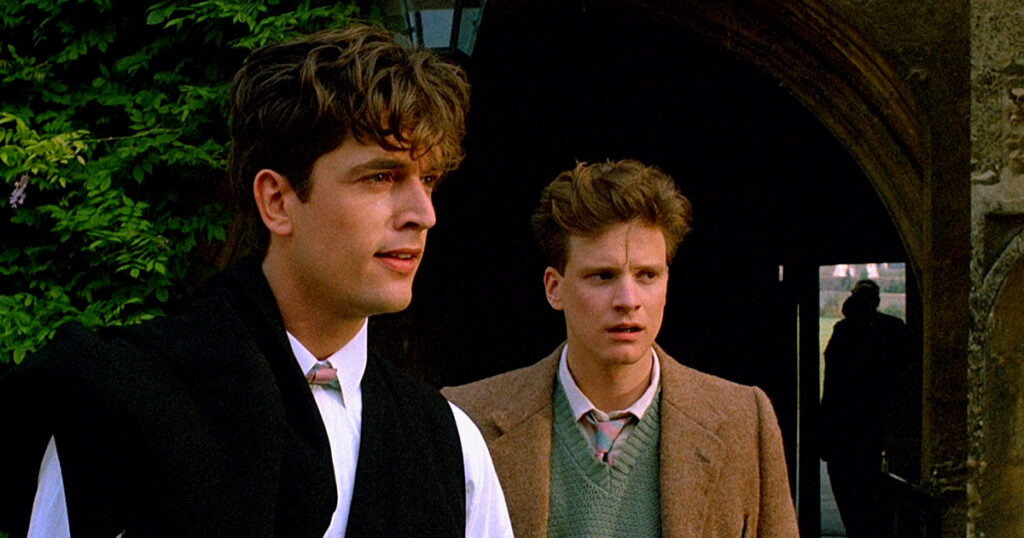[7]
Rupert Everett and Colin Firth star in this coming-of-age period drama set in an elite 1930s English boys’ school, where militaristic tradition and hierarchy seems far more important than education. There is a sense of brotherhood among the students, even though Everett’s character is openly gay and Firth’s character is a devout Marxist. But when another student commits suicide, the school cracks down on its outliers, threatening Everett’s political aspirations and ultimately driving him to become a spy for the Soviet Union. The film is based on a true story.
I was expecting Another Country to portray homosexuality as the ‘boogeyman’ like most other ’80s movies where gay characters wrestle with their identity and come to terms with it. So it was refreshing to see Rupert Everett playing an ‘out’ character from the get-go. And it was was equally refreshing to see how all the supporting characters reacted to him. Gayness is a fact of life in this movie, something many of the young men see as an option for themselves, though usually just a temporary one until they settle down into heterosexual marriage. At one point, Everett threatens to blackmail the school by announcing the names of all the students he’s slept with. His fellow students seemingly worry more for their political futures than for any moral indiscretion.
A young pre-Princess Bride Cary Elwes plays Everett’s romantic interest, though their subplot is a minor one and never gets explicit. And it doesn’t need to be any more significant than that. The more interesting story is the friendship between Everett and Firth, and their tenuous relationship with the school at large. The acting is solid from the entire cast, which includes Rupert Wainwright, Tristan Oliver, and Anna Massey as Everett’s mother. Julian Mitchell’s screenplay (based on his play) is dense with dialogue, with important elements of backstory hidden within — not a film meant for passive viewing. The locations and wardrobe are standouts, evoking a distant time and place I enjoyed visiting for ninety minutes.
While it ends a bit anti-climactically (a problem biopics often have), Another Country succeeds as a coming-of-age story in presenting the requisite loss of innocence. Everett and Firth, both fine actors even in their early twenties, portray two young men pressured to trade their individuality and uniqueness for acceptance and belonging, even if it means compromising their minds and hearts. I don’t think you have to be gay or communist to relate.

